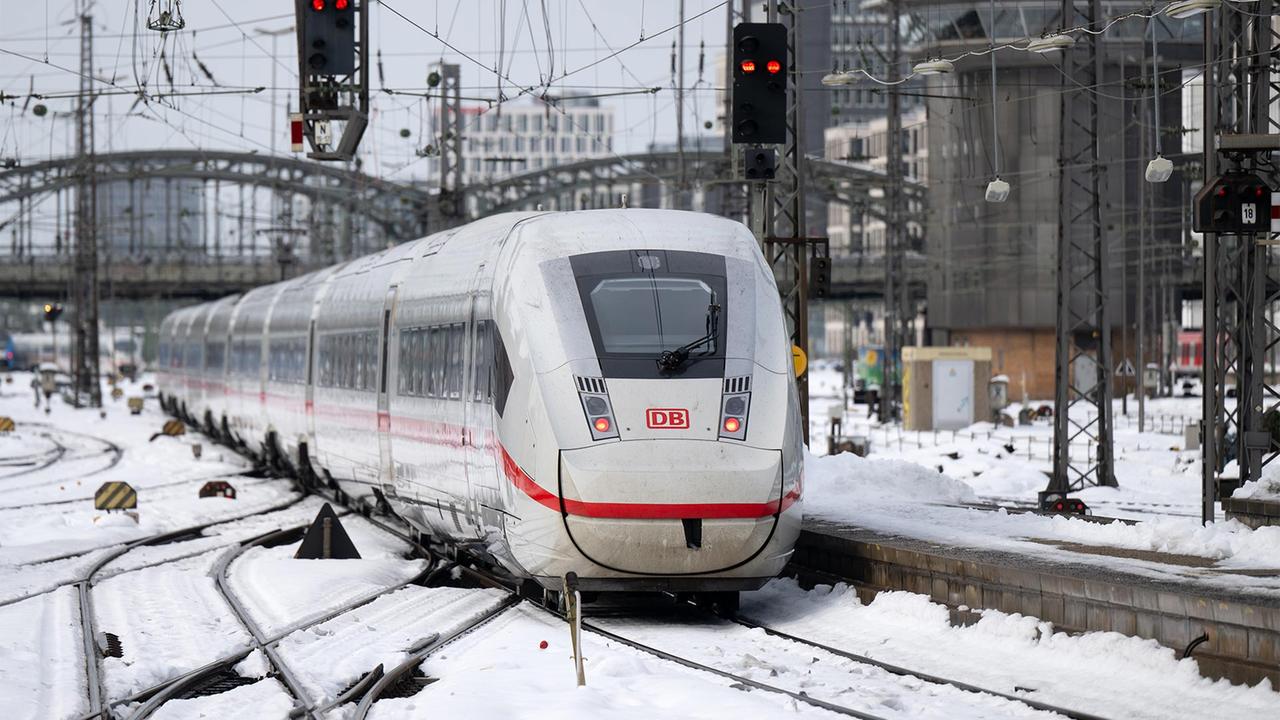exclusive
Previously kept secret documents from Deutsche Bahn show how the salaries of railway bosses could continue to grow in the future – even if trains are unpunctual and customers are dissatisfied.
For a long time, the board members of Deutsche Bahn (DB) benefited from a very special bonus system. High financial rewards accrued even when internal goals for “customer satisfaction” and “punctuality” were completely missed.
For years there has been criticism of the railway bosses’ bonuses. In September, the Supervisory Board of Deutsche Bahn decided on a new compensation model for the board members, which is to be introduced next year.
But internal documents from Deutsche Bahn, the reporters from NDR and WDR have seen, now show that in the future the goals of “customer satisfaction” and “punctuality” will play an even smaller role in the pay of company bosses – and thus precisely the areas that are likely to be the decisive criteria for many rail travelers when it comes to the question of how well they are Railway works.
In addition to documents from the railway supervisory board, the documents also include a concept from a large management consultancy that has been working on since at least 2021.
Customer satisfaction and punctuality are only short-term goals
As is usual with large corporations, railway board members are paid a fixed basic salary and variable remuneration. At the railway, this variable portion is divided into short-term and long-term goals. Customer satisfaction and punctuality are only found in the short-term goals; these two criteria do not even appear in the long-term goals of the DB bosses.
But it is precisely these long-term goals that the new compensation model aims to significantly enhance. This model is strongly criticized not only by union representatives, but also by a former corporate executive: “Punctuality is a quality feature and probably the most important thing in a rail system. This means that if you want to manage this company in the long term, this is the core factor for corporate management.”
According to the new model, the railway bosses will probably have to accept salary cuts as a first step – at least for the time being. This emerges from a minute of the railway supervisory board from September.
It says: “The change in the compensation structure will be accompanied by a reduction in the compensation paid out for the years 2025 to 2027.” And so a few weeks ago positive reports from the railway supervisory board reached the media: Everything new, more control and less money for the railway bosses.
Maximum salaries sink
While under the old remuneration model, board members could receive a bonus of up to 200 percent if a target was fully met, under the new model this should be 150 percent. Therefore, the maximum salaries decrease accordingly during this period. The principle of being able to use one particularly good area to compensate for another area in which the goals were missed should now end.
But as the internal documents show, the NDR and WDR As we could see, a system had long since been developed for the railway bosses with which their salaries could grow again in the future.
The salary for new members of the board of directors is to increase in their first term of office, from the current 1.15 million euros to 1.4 million – a jump of 22 percent. The proportion of the fixed basic salary in total compensation is also set to increase, from the current 36 percent to 50 percent in the future.
Development of salaries with a view to other companies
How the railway wants to set its top salaries in the future could have a particularly strong impact – by apparently basing them on the development of salaries in other companies. The list of these companies lies NDR and WDR before. In addition to the gas giant Uniper, Volkswagen and Siemens, they also include Deutsche Post, Telekom, Lufthansa and TUI.
According to the supervisory board minutes, the railway has decided to “review the remuneration levels of the DB board members at least every three years in the future and to adjust them if necessary (…) on the basis of a comparative report.”
According to the management consultancy’s suggestion, other factors could also be included in this report, specifically: how the salaries of the railway employees have developed, how well the railway group is doing economically – and the railway also wants the remuneration of its board members to be influenced by the general price increase measure from now on. It is quite possible that the salaries of railway managers will grow again in the future.
Bonus system also for around 70 Corporate executives?
According to the internal report, there are also considerations about applying the new bonus system not only to the board of DB AG, but also to the around 70 group managers who head the railway subsidiaries (including Regio, Cargo and Schenker), which number around 1,100 Senior managers and the approximately 2,400 senior managers of the railway.
Not only would high salaries be guaranteed for more than 3,500 top rail managers – but also that the goals of “punctuality” and “customer satisfaction” would probably play an even smaller role in calculating bonuses.
One regulation, however, apparently will not change at all in the new remuneration model: when the railway bosses forfeit their right to bonus payments. In the future there will be a so-called dampening factor in the contracts, which will halve the bonus payments if three or more goals are missed.
Basic salary and bonuses for long-term goals are probably safe
However, the so-called malus and clawback regulation remains unchanged. It comes into play if the company finds that a board member has breached their duties. The company can then reclaim funds.
However, not so much from a railway board member: In both the old and the new system, it is apparently stated that they will always have their basic salary and bonuses secure for their long-term goals – even if they have breached their duties. DB AG can apparently claim back a maximum of half of the bonuses for short-term goals.
During the government press conference on Monday, a spokesman for the Federal Ministry for Digital and Transport defended the new remuneration model. The federal government has set out to place greater emphasis on the common good on the railways again in this electoral period. “We are doing this by adapting DB AG’s compensation system and, in this context, also aligning the individual goals of the board members more closely with the common good.”
When it comes to the common good, “customer satisfaction” and “punctuality” are actually particularly important goals for the railway. The railway explained at the request of NDR and WDR, They do not comment on Supervisory Board matters and refer to the company’s annual reports.
Marcus Engert, NDR, tagesschau, December 12, 2023 10:00 a.m




